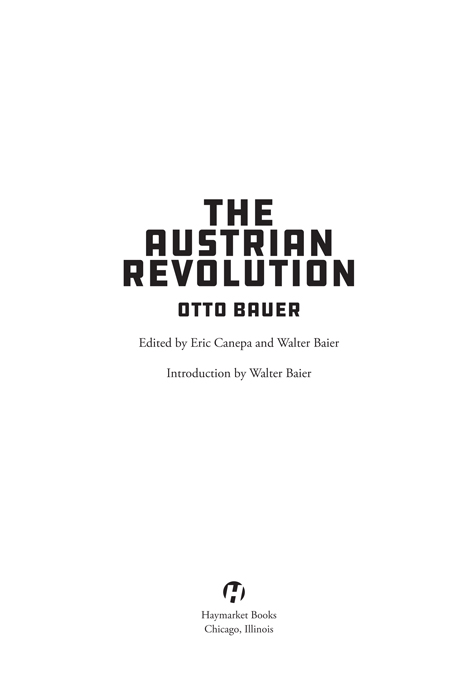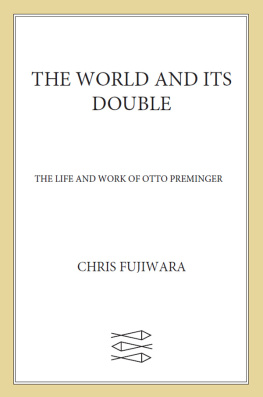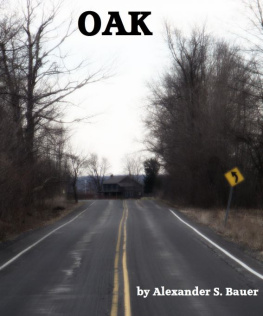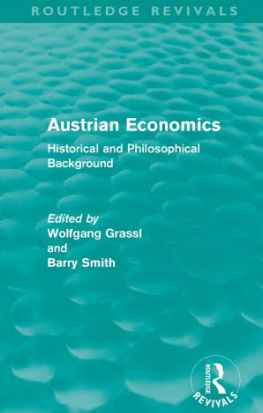Bauer Otto - The Austrian Revolution
Here you can read online Bauer Otto - The Austrian Revolution full text of the book (entire story) in english for free. Download pdf and epub, get meaning, cover and reviews about this ebook. publisher: Haymarket Books, genre: Politics. Description of the work, (preface) as well as reviews are available. Best literature library LitArk.com created for fans of good reading and offers a wide selection of genres:
Romance novel
Science fiction
Adventure
Detective
Science
History
Home and family
Prose
Art
Politics
Computer
Non-fiction
Religion
Business
Children
Humor
Choose a favorite category and find really read worthwhile books. Enjoy immersion in the world of imagination, feel the emotions of the characters or learn something new for yourself, make an fascinating discovery.
- Book:The Austrian Revolution
- Author:
- Publisher:Haymarket Books
- Genre:
- Rating:4 / 5
- Favourites:Add to favourites
- Your mark:
- 80
- 1
- 2
- 3
- 4
- 5
The Austrian Revolution: summary, description and annotation
We offer to read an annotation, description, summary or preface (depends on what the author of the book "The Austrian Revolution" wrote himself). If you haven't found the necessary information about the book — write in the comments, we will try to find it.
The Austrian Revolution — read online for free the complete book (whole text) full work
Below is the text of the book, divided by pages. System saving the place of the last page read, allows you to conveniently read the book "The Austrian Revolution" online for free, without having to search again every time where you left off. Put a bookmark, and you can go to the page where you finished reading at any time.
Font size:
Interval:
Bookmark:
Praise for The Austrian Revolution
On the wave of the great peace movement that grew in the 1980s with the slogan For a Europe without missiles from the Atlantic to the Urals, some communist parties, Italys in particular, launched a dialog with certain social democratic parties whose leadership had in those years taken a similar position, and with the CPSU itself that Gorbachev had come to head, proposing a third way for Europe outside of the blocs. Had the occasion been seized then to rediscover Austro-Marxism, which would have allowed a more profound reworking of the different political-strategic outlooks, the process would have been sturdier. This did not happen, and it was another lost opportunity.
Even as a not very orthodox communist, it never occurred to me at the time to look into Austro-Marxism, since my generation harbored a strong suspicion that it involved opportunistic superficialities. It is only recently, largely thanks to Otto Bauers The Austrian Revolution, that I have discovered the richness of the Austro-Marxist tradition and the many affinities between the writings of Bauer and of our Gramsci, especially on the question of hegemony. To his credit, Togliatti legitimized Gramscis analysis from the very first post-war years, but not enough to open the way to Austro-Marxism, which remained taboo for us. This excellent new English edition of Bauers classic work will surely stimulate new interest in Italy and help fill this void in its Marxist culture.
Luciana Castellina, cofounder of Il Manifesto
The revolution in Central Europe in 191821 was a giant event that came closer to changing world history than most of us realize. For English speakers, this translation opens a challenging new window on the history of the Austrian workers council movement and the role of the Entente powers in the counterrevolution that followed. Published in 1923, it stands unique as an analysis of the revolutions internal dynamics and the costs of defeat.
Mike Davis, author of Planet of Slums
Otto Bauers book on the Austrian Revolution is one of the forgotten shining gems of the extraordinarily rich literature that Austro-Marxism has to offer. Thanks to this excellent new translation, this classical work is now available to the English reader in a complete version for the first time. Students of European socialism, of Marxism, and of European history will be able to enjoy a first-rate theoretical and historical analysis of modern mass democracy by the leading theoretician of European social democracy during the interwar years and after. Otto Bauers book, first published in 1923, caused quite a sensation in its time, and rightly so. It is one of the classics of Marxist political analysis, only comparable to Marx Eighteenth Brumaire of Louis Napoleon or Trotskys History of the Russian Revolution. Like Trotsky in Russia, Otto Bauer was one of the core protagonists of the Austrian Revolution of 19181919, which led to the establishment of the first republic in the part of the Habsburg Empire that became Austria. How does the character of a democratic republic based on universal suffrage change due to the shifting power relations between the major social classes? This is the problem Bauer scrutinizes in his seminal book. His findingsthat the contents and the meanings of the republic can and do change even if the political forms established by a constitution remain the sameare still relevant today. Bauers analysis, which exemplarily highlights the crucial difference between the form of the state and the form of governance, covers an exceptionally broad terrain: from parliamentary politics up to the first forms of proto-corporatism (dubbed functional democracy). His book triggered a lively debate among leading political and legal theorists, notably Hans Kelsen, the father of the first Austrian republics constitution, Bauer, Karl Renner, and Max Adler. Bauers final reflections on modern democracy and its crises appear in his last major work, Between Two World Wars?, published in 1936.
Michael R. Krtke, author of Friedrich Engels
Red Vienna and the contributions of its protagonists like Otto Bauer are tragically overlooked on the contemporary left. Walter Baier and Eric Canepa have edited a thrilling work from Bauer with the aim of correcting thatand to chart a new course for those looking for alternatives to bankrupt social democratic parties and defeated Leninist ones.
Bhaskar Sunkara, founding editor of Jacobin

2021 Eric Canepa and Walter Baier
Published in 2021 by
Haymarket Books
P.O. Box 180165
Chicago, IL 60618
773-583-7884
www.haymarketbooks.org
ISBN: 978-1-64259-216-0
The translation, research and gathering of pictorial material for this book was funded by Transform Europe and partially financed through a subsidy from the European Parliament; its publication was made possible by the generous support of Lannan Foundation and the Wallace Action Fund.
Distributed to the trade the US through Consortium Book Sales and Distribution (www.cbsd.com) and internationally through Ingram Publisher Services International (www.ingramcontent.com).
Special discounts are available for bulk purchases by organizations and institutions. Please call 773-583-7884 or email for more information.
Cover image of Proclamation of the Republic in Front of the Parliament, 1918, by Rudolf Konopa, Wien Museum, Vienna. Cover design by Rachel Cohen.
Library of Congress Cataloging-in-Publication data is available.

ACKNOWLEDGEMENTS
We would like to thank transform! europe for its financial support of the translation, research, and the acquisition of pictorial material and Heidemarie Ambrosch of transform! europe for her coordination of this assistance. The Verein fr Geschichte der ArbeiterInnenbewegung (Association for the History of the Labour Movement VGA), Vienna, provided crucial support in supplying source materials and providing much detailed information and ongoing fact-checking; in this regard we thank in particular Georg Spitaler as well as Michaela Maier (director VGA), and, for making available the VGAs rich photographic archive, Elfriede Pokorny. For pictorial material we are also grateful to Manfred Mugrauer and Fini Seif of the Kommunistische Partei sterreichs-Bild-Archiv, Vienna, Nicola Fontana of the Museo della Guerra, Rovereto, Caterina Tomasi of the Fondazione Museo Storico del Trentino, Trento, Daniela Geist and Frauke Kreutler of the Wien Museum, Vienna, and Barbara Kramreither of the Heeresgeschichtliches Museum (Museum of the History of the Army), Vienna.
For further source material and source checking we would like to thank Klaus Zeleny of the Hans-Kelsen-Institut, Vienna, Lisa Kenny of the British Librarys News Reference Team, and Zdenek Matuik and Lenka Vlkov of the National Library of the Czech Republic.
In New York thanks are due to Michael Lardner of the Marxist Education Project for his mediation in providing printed copy needed for proofreading.
Also in the United States, we thank Haymarket Books, in particular Ida Audeh and Janet Reed Blake for their painstaking proofreading of the text, Rachel Cohen for typesetting it, Niha Bolsey for coordinating the whole project, and Duncan Thomas and Brekhna Aftab for their efforts in promoting the book in Europe.
And finally, we would like to thank Perry Bernstein of New York who went through the whole text suggesting countless, often crucial, substantive corrections.
Next pageFont size:
Interval:
Bookmark:
Similar books «The Austrian Revolution»
Look at similar books to The Austrian Revolution. We have selected literature similar in name and meaning in the hope of providing readers with more options to find new, interesting, not yet read works.
Discussion, reviews of the book The Austrian Revolution and just readers' own opinions. Leave your comments, write what you think about the work, its meaning or the main characters. Specify what exactly you liked and what you didn't like, and why you think so.













